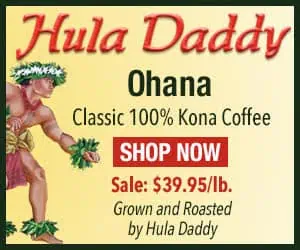The specialty coffee business was founded on a sort of practical idealism. The great iconoclastic tradition of the coffee house, coffee’s myth-embellished history as the beverage of the people, the anti-corporate stance of the early specialty coffee culture, all seemed to attract leaders who were interested in making a difference as well as in making a living.
Some years ago, however, a couple of slightly different versions of specialty coffee idealism began to, if not conflict, at least rub up uncomfortably against one another. One version is the idealism of taste, of cup quality, the conviction that publicists come and publicists go, fancy names and picturesque stories are all very well, but the proof is in the cup. Quality counts, not hype. The other idealism is the more explicit people-first kind. These idealists aim at using coffee as a vehicle to change a few small corners of the world for the better. They look for ways to bypass the relentless, faceless, price-driven commodity market by creating special market niches that will return more money and more benefit per pound directly to the growers, particularly the peasant growers who still produce the majority of the world’s coffees.
The organic niche was an obvious and early choice for these coffee progressives. Coffees that are certified organically grown demand a higher price than conventionally grown coffees, and move through separate exporting, importing and distribution channels into markets where sales pitches based on causes and health concerns are as familiar as granola for breakfast.
Peasant growers typically can’t afford chemicals, so their farms often are de facto “organic,” and consequently easily certifiable as such. So organic certification, often arranged by idealists working in the coffee industry and at least partly financed by development agencies, becomes a way of bringing credibility and higher prices to coffees that otherwise might be lost in the sad and relentless river of anonymous beans traded purely on the basis of price. With organic certification cooperatives of peasant farmers or small holders suddenly have a recognizable product, a recognizable name, and a bit more money for their efforts. Larger farms, too, are often able to leverage similar recognition and price premiums by playing the organic card.
But what about taste, quality in the cup? The quality-first idealists complained that many of the new organics were ordinary coffees whose price premium could not be justified on the basis of their cup quality. These skeptics felt sympathetic to the causes represented by organic coffees, but resented the promoters of those coffees for paying more attention to the marketing appeal of the causes than to the quality of the cup.
All of which is background to the question before this (as well as my next) cupping: Have the promoters of the organic coffee movement begun to succeed in identifying coffees that are as admirable in the cup as they are in their cooperative social arrangements and exemplary growing practices? Certainly there is nothing inherent in organic growing practices that should prevent organically grown coffees from equaling (or exceeding) conventionally grown coffees in quality. The issue is whether coffees selected mainly on the basis of growing practices and related causes can compete in quality with those chosen on the basis of quality alone.
I started this exercise feeling particularly pessimistic owing to a conversation with Kevin Knox of Allegro Coffee, who pointed out that the El Nino phenomenon provoked a particularly bad coffee year for Central America, where many of the most respected organics are produced. When yields decline, farmers and mill-owners tend to be less rigorous in selecting the coffees they ship, and overall quality suffers. Kevin estimates that organic farming practices add about 40% to the cost of production in Central America, whereas growers receive a premium of only about 30% for their organics, a situation that obviously encourages farmers and mill-owners to compromise on quality. lamented that quality in organics is declining rather than improving owing to a discrepancy between the current premium paid by wholesale buyers for organics (about 30%) and the additional cost of producing those organics, which Kevin estimates at about 40%. This chicken-and-egg problem (low coffee prices discourage growers from pursuing quality; poor quality justifies even lower prices, and so on in a depressing spiral) is, as Kevin points out and I agreeof course, common throughout the fine coffee business. Consumers seem ready to pay almost any price for a badly made caffe latte, while over at the retail coffee counter they balk at paying a couple of dollars more per pound for coffees that are analogous in quality to the world’s finest wines.
Fortunately, my sampling of organics only partly justifies such does not justify Kevin’s pessimism. I tasted a couple of very fine coffees among the approximately twenty I cupped. Others were quite worthy and interesting. The ten coffees I chose to report on here were selected from among the twenty on the basis of geographical diversity as well as on the basis of quality and interest.
I haven’t cupped all that many Nicaraguas and Mexicos over the last few months, but it seems to me that the Allegro Nicaragua Segovia, the Batdorf & Bronson Mexico, and even the Montana Coffee Traders’ Dominican, were equal or better than any of their conventionally grown compatriot coffees I’ve had on the table.
And, as always, tactful roasting makes a good coffee better, regardless of how it is grown. I’m sure it is no accident that the two highest-rated coffees in the cupping were roasted under the supervision of two of the specialty industry’s most respected roastmasters: Kevin Knox of Allegro Coffee and (roastmistress?) Lindsey Bolger of Batdorf & Bronson.










